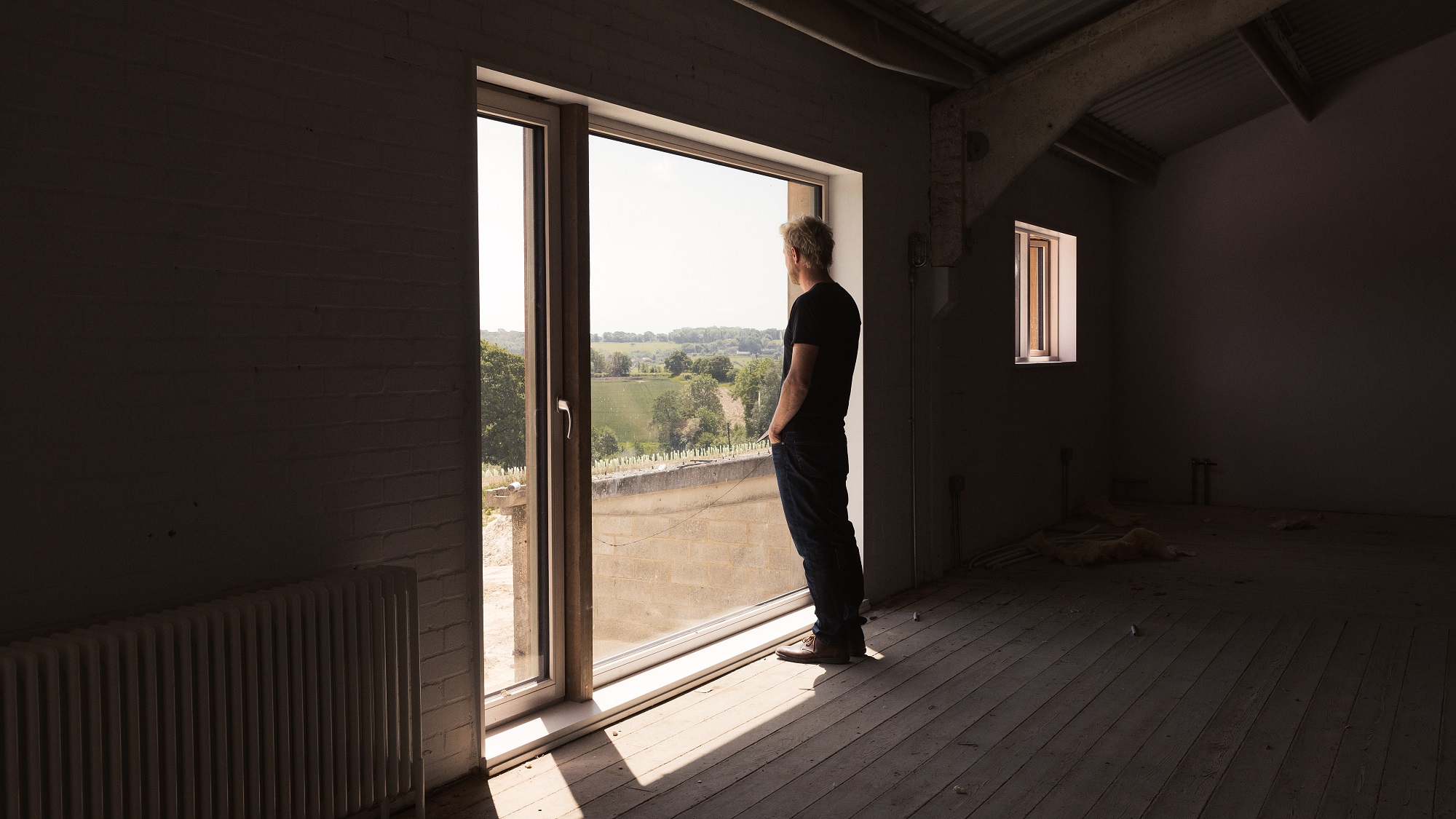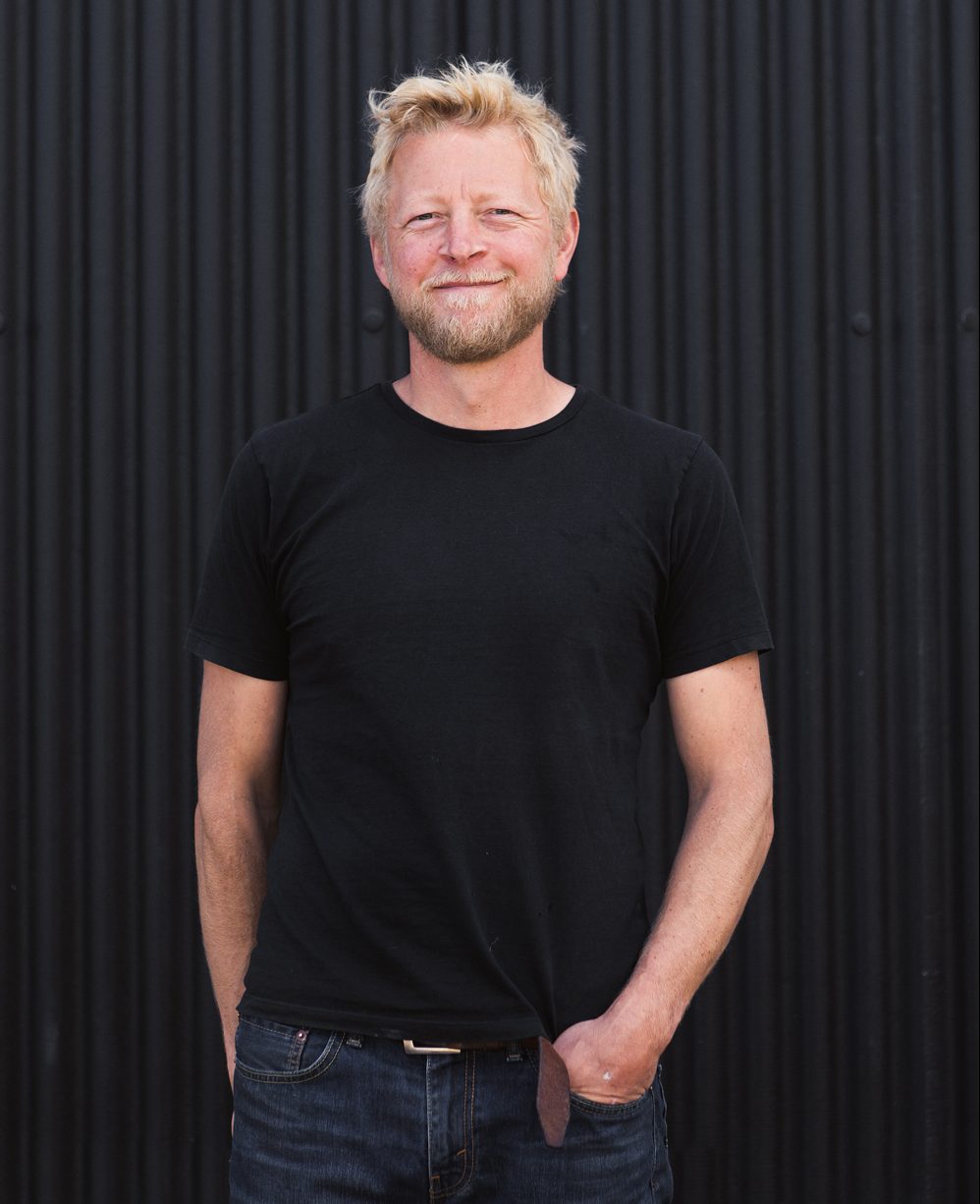
Meet Ben Walgate at Tillingham
We recently met up with Ben Walgate in Peasmarsh, near Rye in East Sussex. This beautiful mixed farm, dating from the 13th century, is home to grazing livestock, ancient woodland and fruit trees. In addition, Ben has co-founded Tillingham, establishing a vineyard in order to make natural and biodynamic wines. While still in the early stages – Ben has been making incredible wines using bought-in grapes – the farm has now been planted with 36,000 vines of different varieties and he plans to begin production using his own grapes when the vines mature in a 2021. Ben is farming without pesticides. He is making wine by adding wild yeast to his hand-crushed grapes and fermenting in traditional terracotta Georgian qvevris, as well as in steel, oak and concrete vats.
We sat down to discuss Ben’s experiences so far, as well as his concerns for the future and the support he needs.
Many thanks to Ben for the generous amount of time he spent with us. And to talented photographer, Benjamin Youd, for helping us to tell Ben’s story.
Scroll down to meet Ben.
Learn the difference between organic, biodynamic and natural wines below:
PAN: How did you get started?
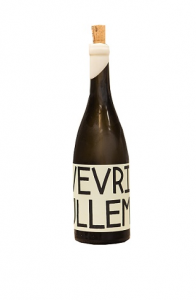 Ben: As the fields had been farmed conventionally over the years, it took some time to prepare the soil for planting. Having established that the soil organic matter levels were low we introduced a large amount of compost (made from leftover grape skins and stalks) and manure, about 50 tons/ha, including some trace elements of boron, zinc, sulphur, molybdenum. We also worked on adjusting the soil pH with lime. Vines prefer soils that are rich in humus and organic matter and I wanted to create a strong microbial base to support their root systems. I chose to use BD500, the biodynamic preparation of manure fermented in a buried cow horn, as a way to encourage these microbial populations that were lacking in the soil after a long period of agricultural monocultures.
Ben: As the fields had been farmed conventionally over the years, it took some time to prepare the soil for planting. Having established that the soil organic matter levels were low we introduced a large amount of compost (made from leftover grape skins and stalks) and manure, about 50 tons/ha, including some trace elements of boron, zinc, sulphur, molybdenum. We also worked on adjusting the soil pH with lime. Vines prefer soils that are rich in humus and organic matter and I wanted to create a strong microbial base to support their root systems. I chose to use BD500, the biodynamic preparation of manure fermented in a buried cow horn, as a way to encourage these microbial populations that were lacking in the soil after a long period of agricultural monocultures.
We planted a cover crop of radish, mustard, vetch and rye grass in the autumn, before direct drilling additional cover crops alongside the baby vines. My hope is that this will help to provide additional root habitats in the soil for the colonisation of beneficial microbes that will support the nutrition and immune responses of the vines. This year we’ve also planted a wildflower cover crop mix in the field headlands, buffer strips and alleyways to prevent soil erosion, help control weeds, retain soil moisture and encourage wildlife.
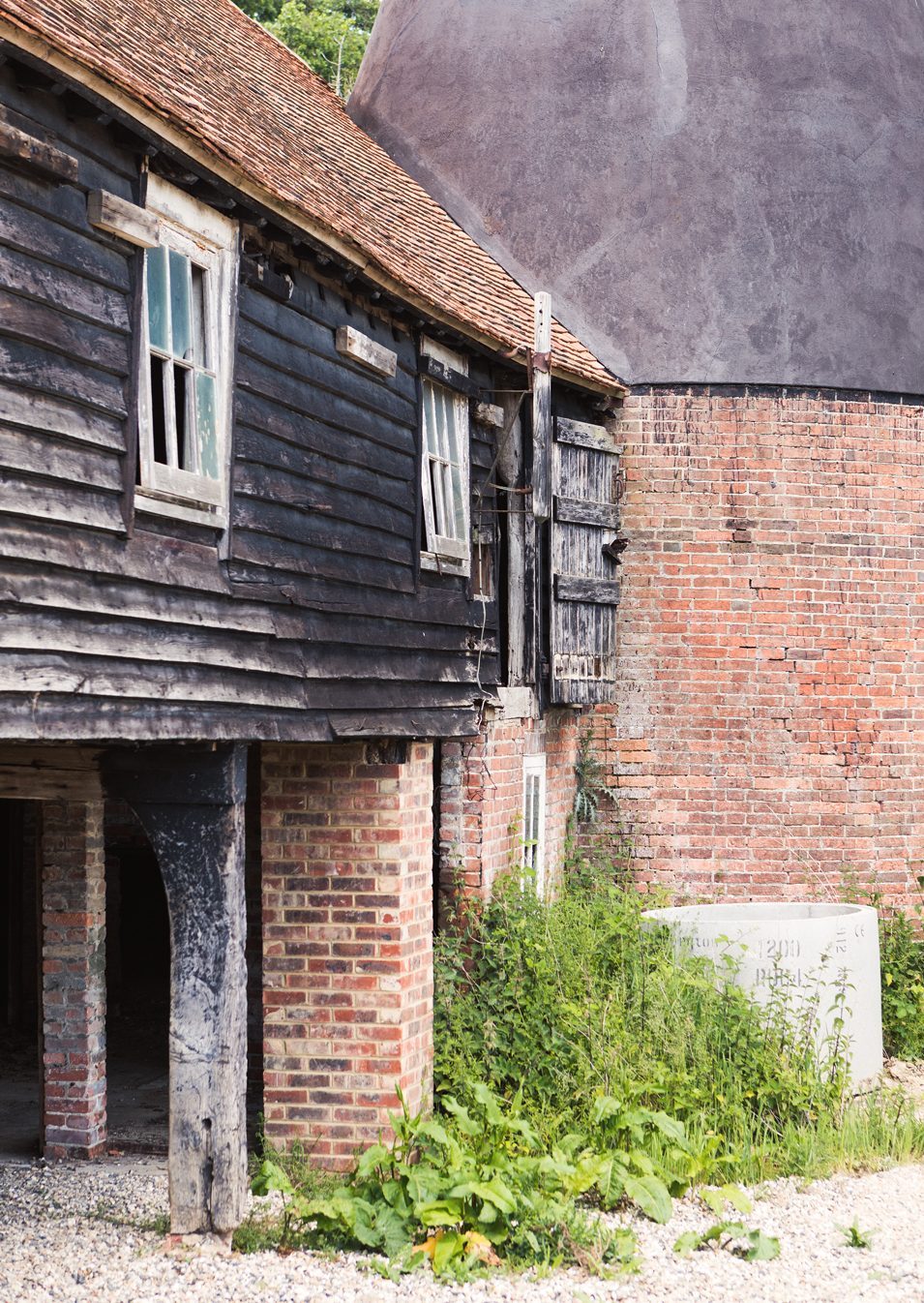
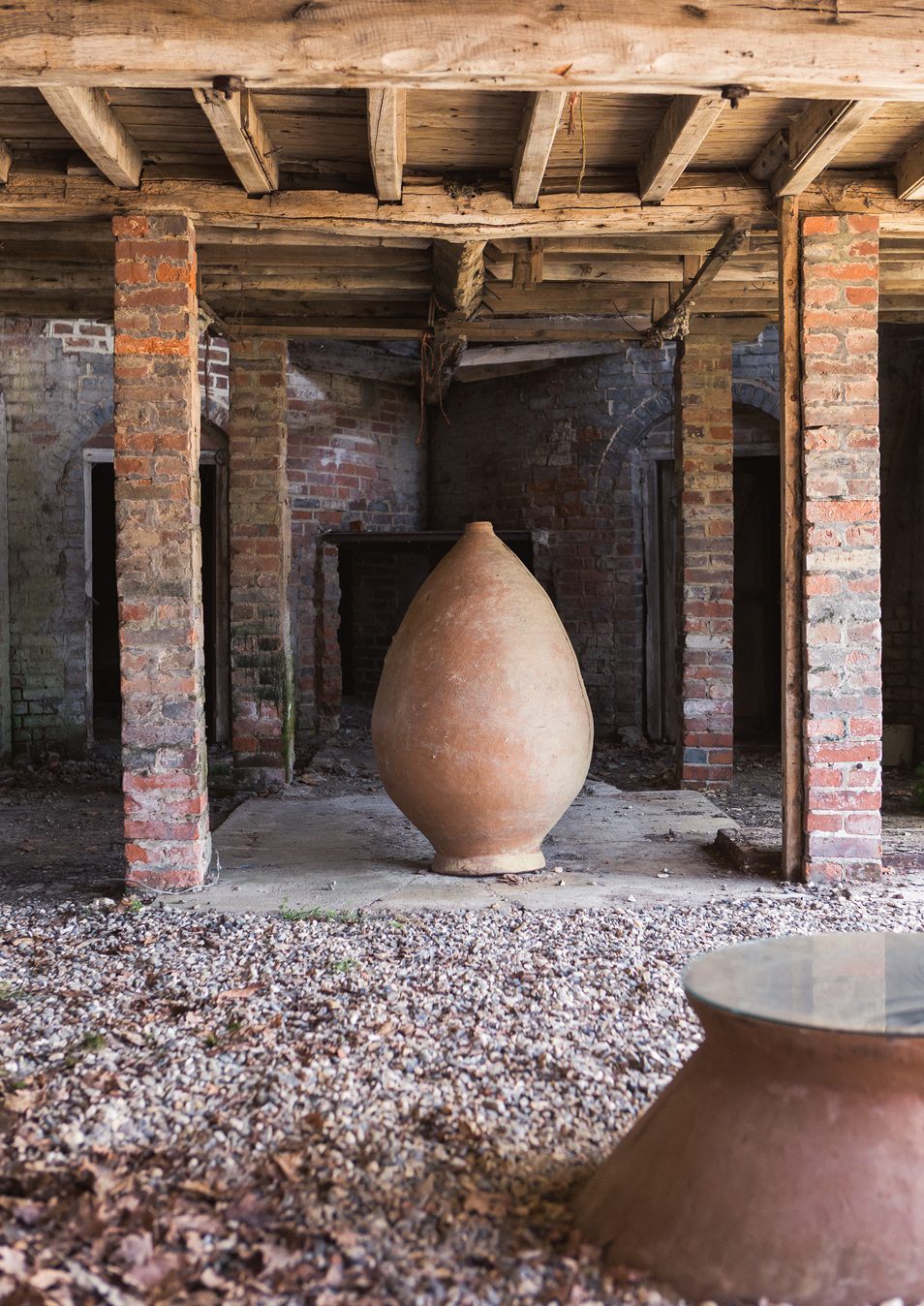
PAN: What was behind your decision to farm using biodynamic principles?
Ben: I believe in soil biology and the ecosystem providing important services to the vines’ natural immune system and nutritional uptake. The more you do to foster good soil health, biodiversity and ecosystem services throughout the farming system, the less disease susceptibility you have in your crop. And, as a result, the better quality of the produce for the wine. But I’m also open to new technology, new understandings and discoveries in science which may not be covered within biodynamics, but as long as it’s beneficial to the environment then I’m open-minded to a multi-pronged approach.
PAN: How does your wine benefit from your method of farming?
Ben: I believe that if you make wine from pristine fruit that has been farmed in this really natural way you should carry that same logic through the whole winemaking process. Minimal interference. The wine is a living product, it has an energy, a dynamism that really resonates. And the natural wine movement is growing around the world. It has parallels in cheese, bread and fermented foods which people are seeking out as these things are inherently better for you.
PAN: How did you learn to farm in this way and where do you go for support?
Ben: Having grown up on a farm, working alongside my father, I developed an innate connection to the land. I’ve also learned how to think outside the box to tackle problems. But it was only once my interest in wine began to take off that I decided to study at Plumpton College and did a two-year course in viticulture and oenology (the study of wine). I then spent years running a vineyard. I did a short residential course on biodynamics as it wasn’t covered in any of the courses I’ve done. Most colleges teaching wine skills are quite dismissive of natural wine and organics. The prevailing thought is that because we’re in such a harsh climate it is suicide to farm this way because there’s so much disease pressure. But my take on it is the exact opposite. Because we have disease pressure there’s more impetus to ensure that there are strong natural processes in the soil and environment. This way you’re less prone to disease and less dependent on pesticides.
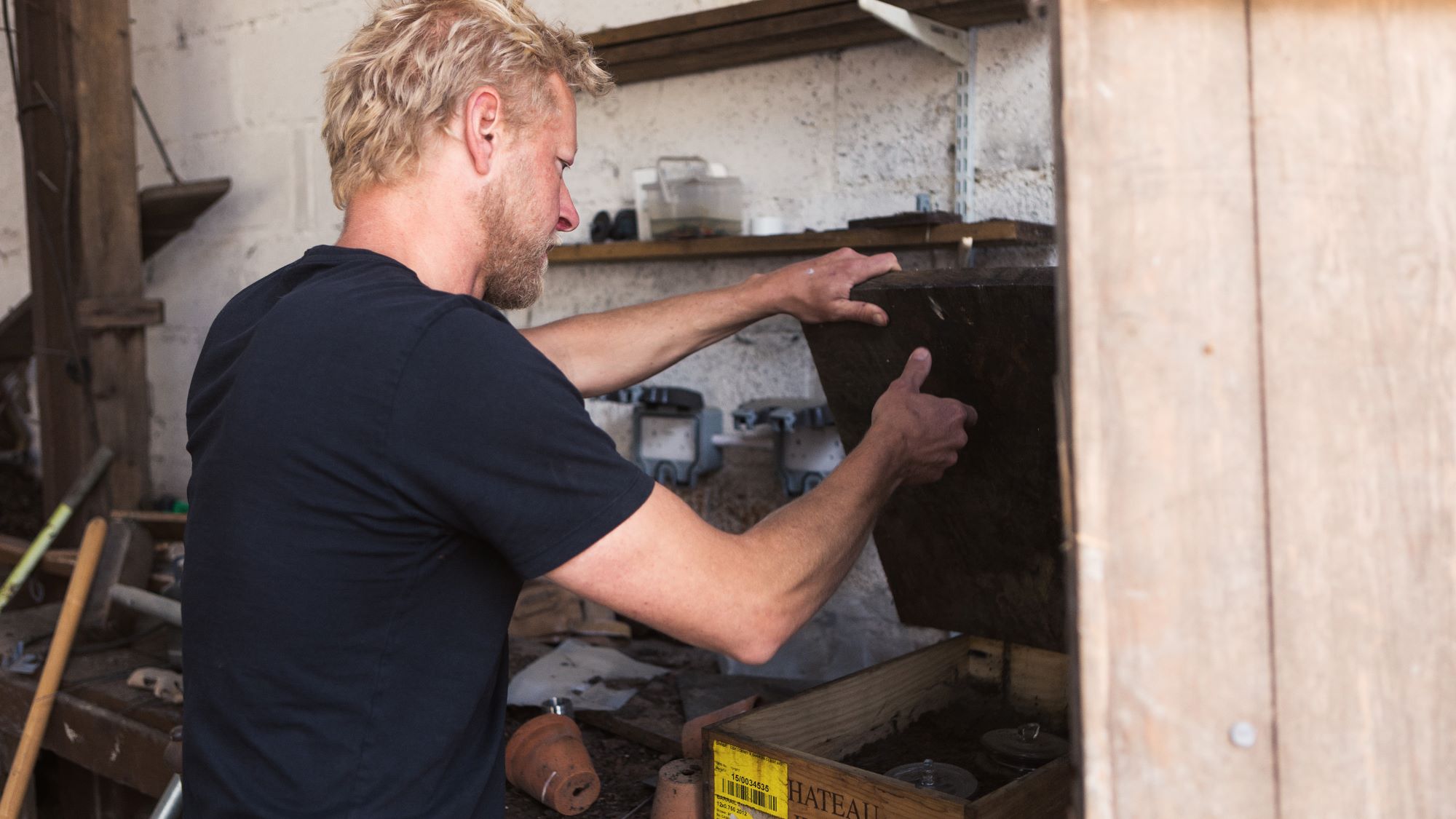
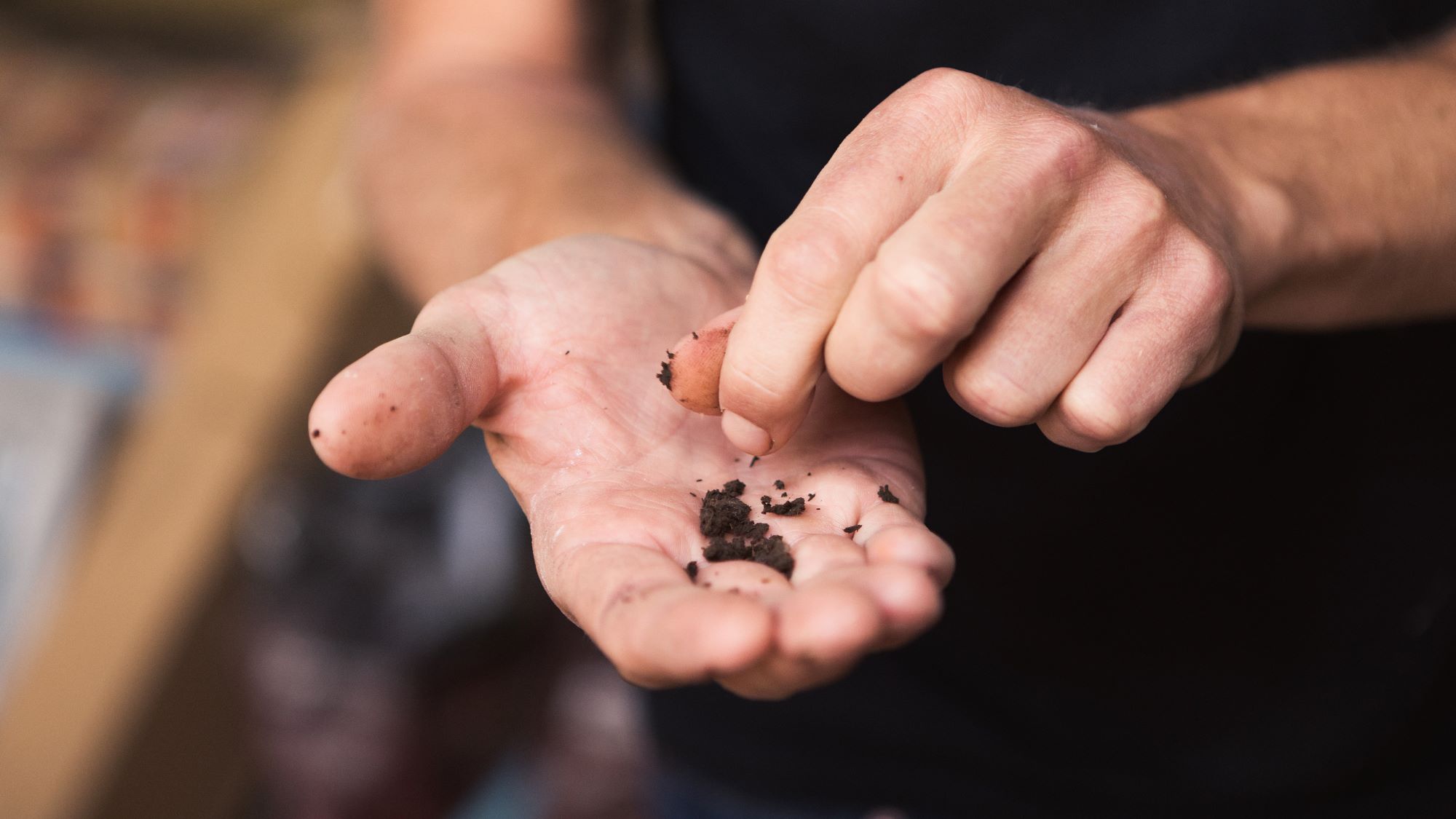
PAN: Which pests and diseases are you mainly concerned with at the moment?
Ben: The main concern we have at the moment is the excessive competition from weeds with our young, immature vines. They’ll be competing for water so a dry summer is a threat. In terms of diseases, our one-year old vines now have some foliage and there is a risk of them getting either downy or powdery mildew.
PAN: What challenges do you expect in the next 5-10 years?
Ben: I’ll be facing the same sorts of diseases that face conventional growers, such as the ones we’ve already discussed, as well as Botrytis mould. And then there’s the relatively new pests, such as spotted-winged drosophila (SWD). I like to think that because of the way we’re farming, we’re going to be less susceptible to these sorts of pests because of the relationships we’re building within the ecosystem and the improved health of the vines. But it’s still a worry and if we have a bad year I’ll have to decide how to tackle the problems that arise.
PAN: What are you using to suppress the weeds you have competing with the vines?
Ben: I don’t want to be using any kind of herbicide. I had a problem last year as the mulch we had ordered earlier in the year, soon after planting, only arrived in August, by which time we were over-run with weeds. I used a side-hoe to do a cultivation but it wasn’t that effective and there was a lot of re-growth. So I found that mulch is only effective if it goes on straight after cultivation with no existing weed growth. After getting caught last year, we got the compost mulch on earlier, though still found areas where weeds are very invasive. Dock, fat hen and thistles, we had to cut these back manually using a brush cutter. We also hand weeded (at great expense) a lot of the 2018 plantings.
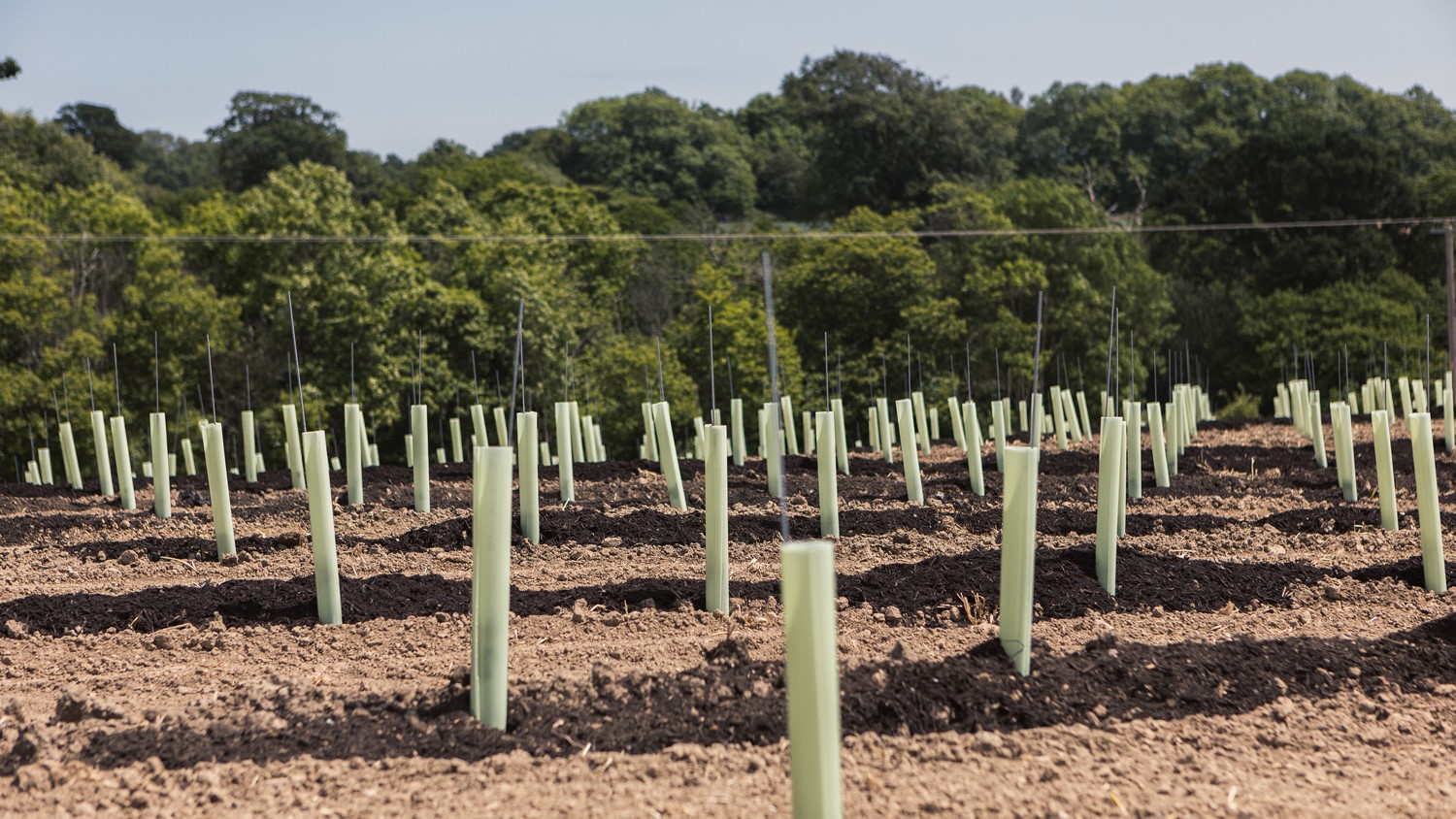
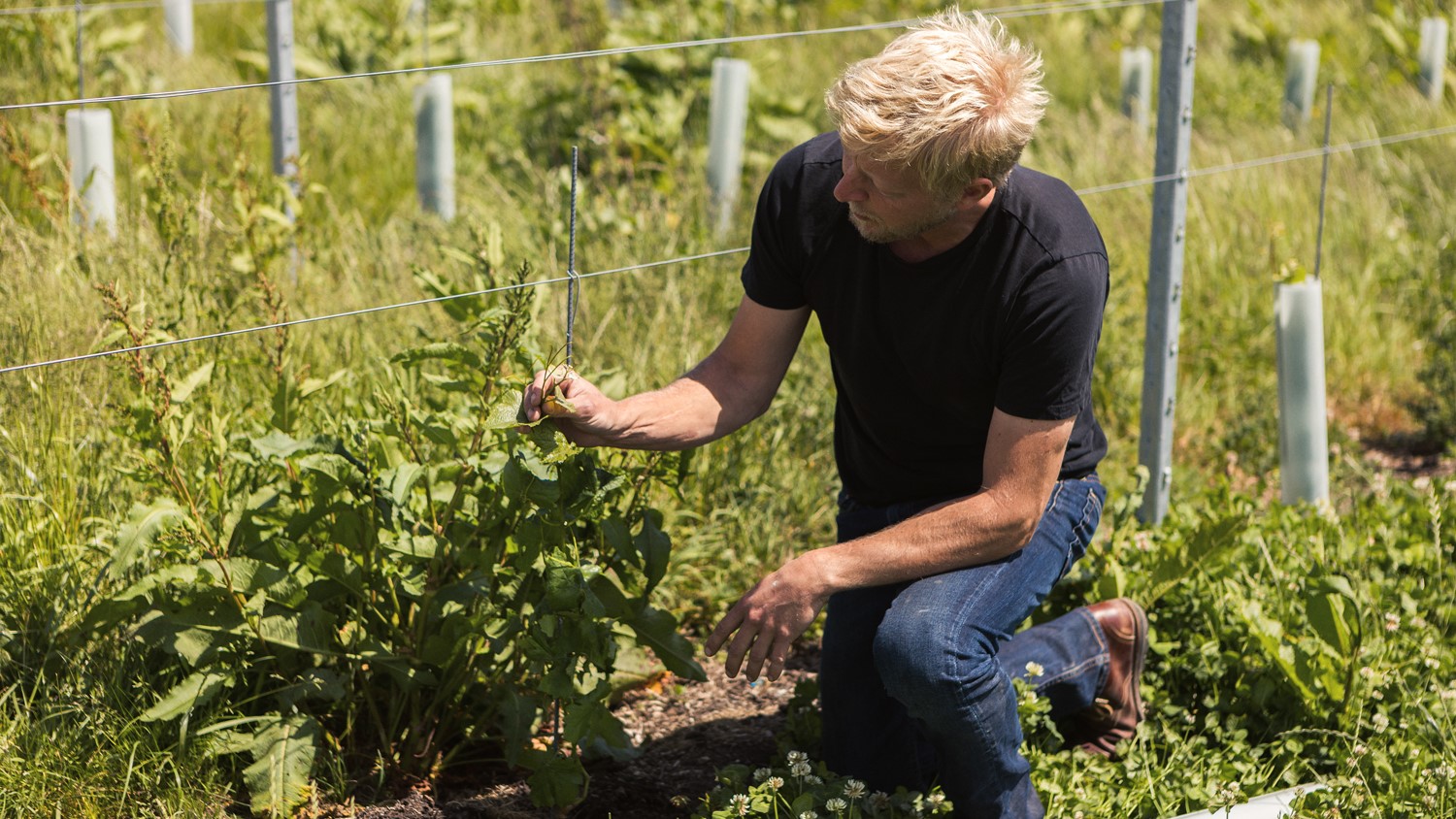
PAN: Could supermarkets/retailers be doing more to help farmers like yourself?
Ben: Definitely! But the competitive nature of the supermarkets make this very unlikely. The idea of them promoting a practice, which, in the short term is more expensive, is not going to happen. If the demand is there though, it might encourage change.
PAN: So how can you reach consumers to encourage change?
Ben: With little businesses like ours we’ve built our audiences by championing best practice. By doing things differently and ultimately having a really good product. We’re very much in demand because we offer a product better than the conventional. I’m quite excited about the future, what we’re talking about, and what you’re doing. I’m not just doing this to make money and to make a lifestyle for myself, I believe passionately that this approach is the approach that should be more widely adopted.
PAN: What should the government be doing to support more farmers like you?
Ben: My understanding is that subsidies are moving more towards environmental stewardship, but this doesn’t reflect your practice in terms of what chemicals you use, or don’t use, in your vineyard. It’s more about creating habitats etc. But, there should be more incentives for people to farm more intelligently. Having farmed in a traditionally conventional way for years, farmers can be unwilling to try new approaches. If we could get grants for farming without pesticides, to help us buy the expensive machinery and tools we need, it might encourage others to give it a go. We also need more training providers to be offering courses on less conventional methods.
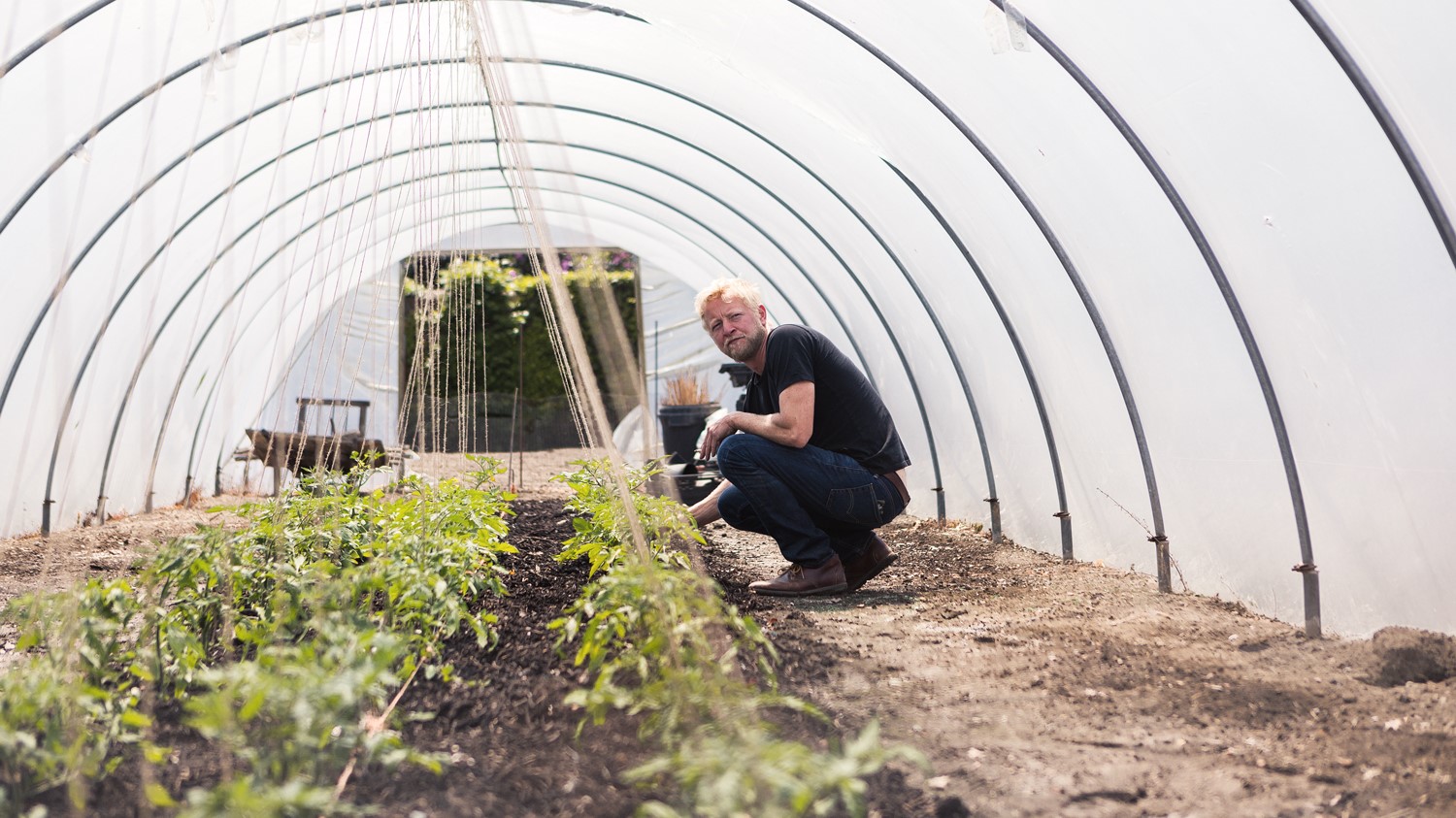
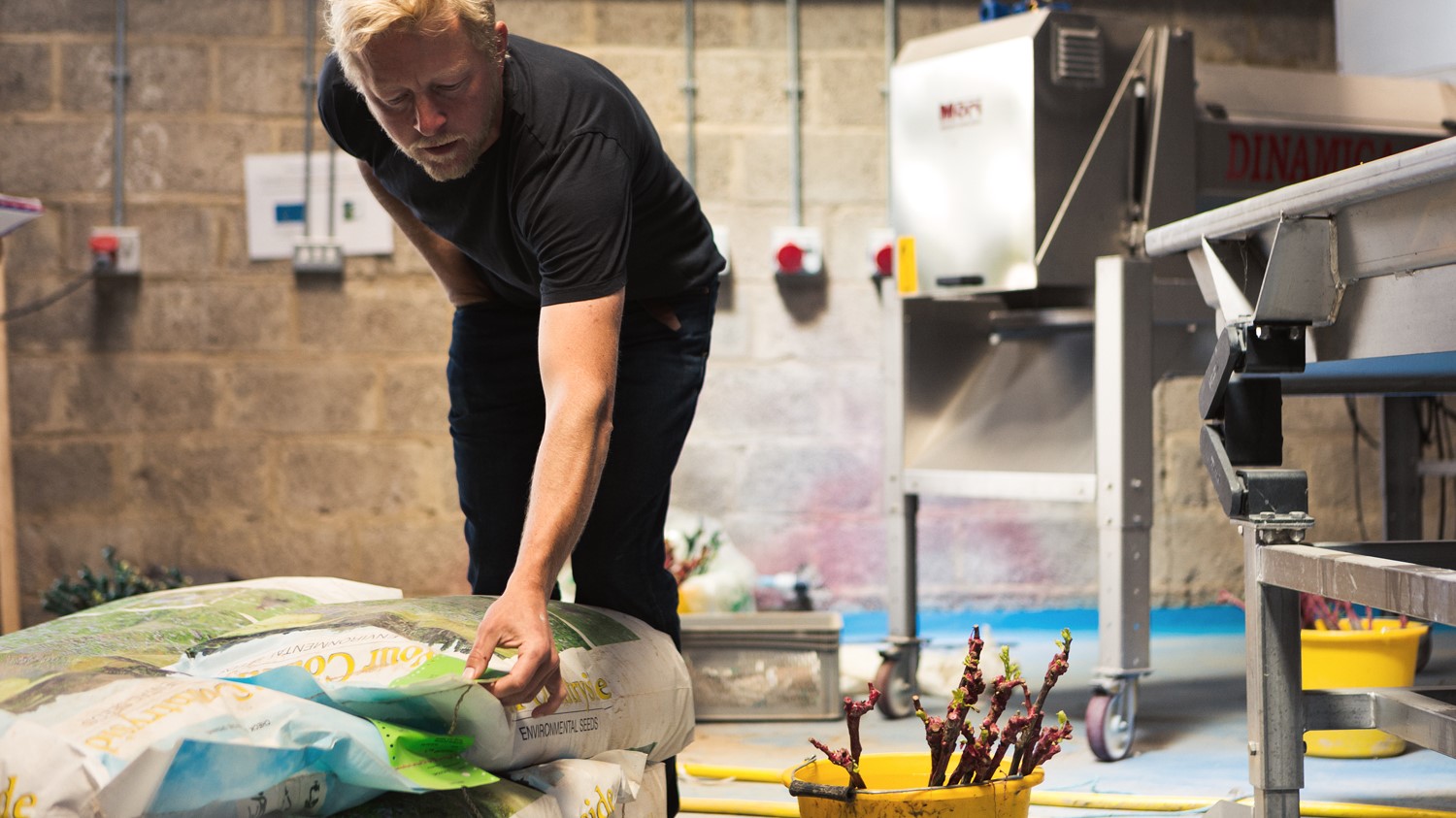
PAN: What advice would you give other farmers about reducing/ending their use of pesticides?
Ben: It’s the vineyard owners that need to be encouraged to change their approaches. Managers are often quite keen to try new things, but getting an owner to divert capital into an area that’s perceived to be more risky, with unknown returns, is often too much to contemplate. Our national association, WineGB, could be doing more to engage with business owners, talking to them about the future of farming and how a more sustainable approach is going to reap rewards in the longer term. They could also be offering more training and support.
PAN: What sort of business model are you working towards?
Ben: My vision is to operate a ‘closed-gate’ system. We take the manure from the cattle to feed the vines and vegetables, we eat the cattle, we encourage wine tourism, and each part of the business is complementary to the other. Building brand loyalty and selling directly to the customer so you’re less dependent on distributors and foreign markets. It’s actually the way farming used to be pre-industrialisation. It’s a much more sustainable way of doing business.
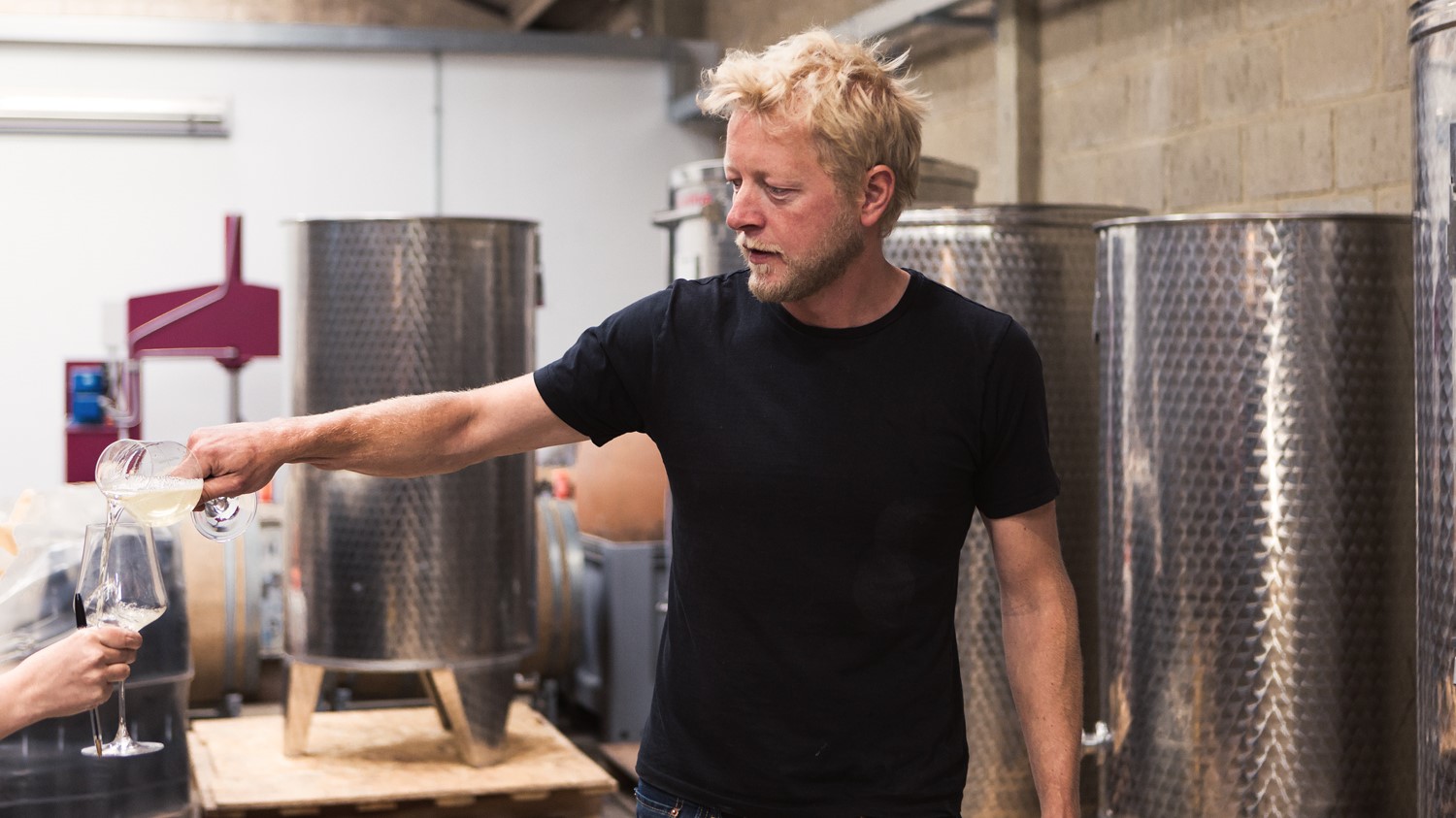
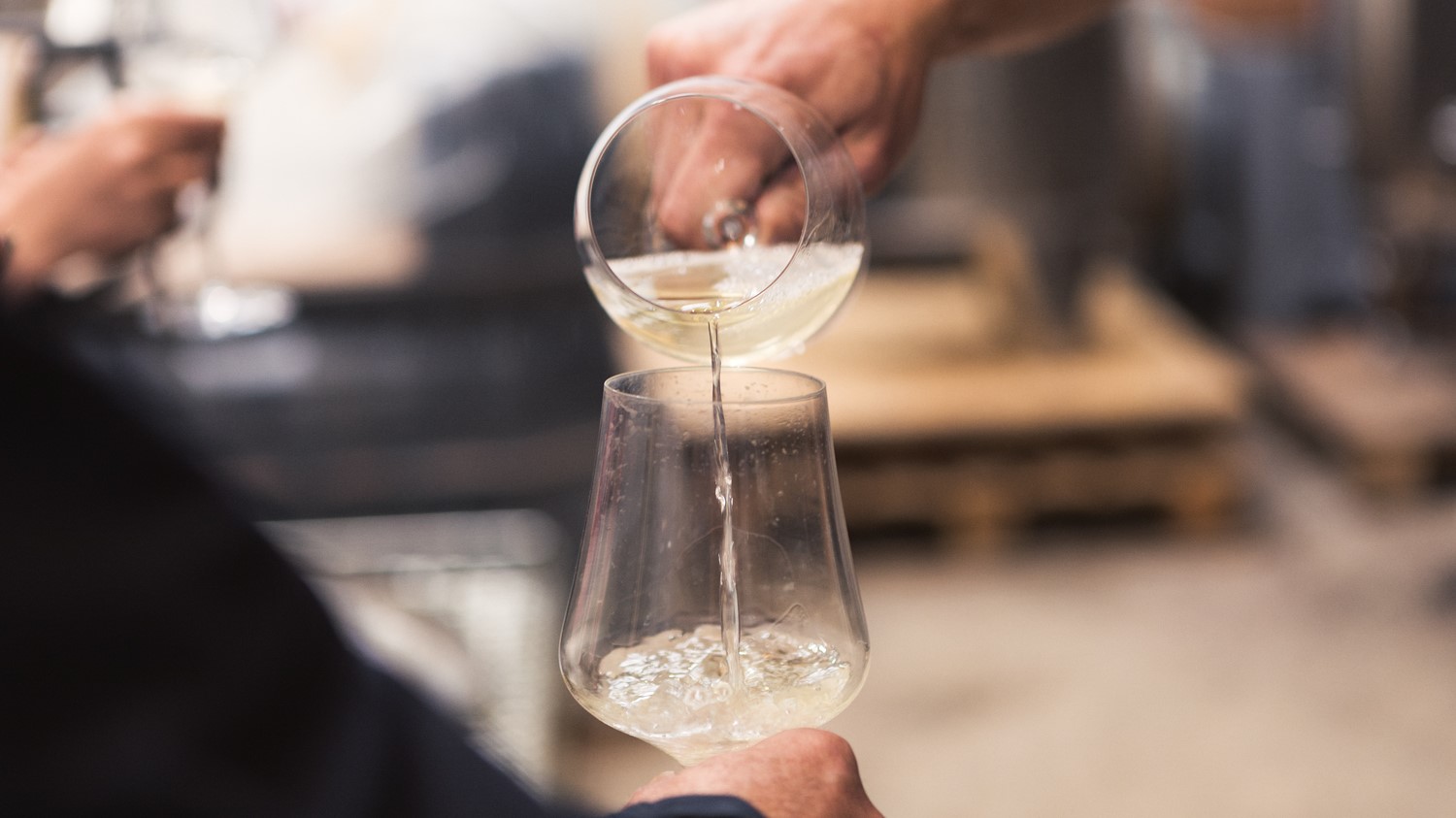
PAN: Finally, do you believe that a world without synthetic pesticides can exist?
Ben: Yes, I believe that if the system is strong, healthy and in balance it can deal with pests and diseases. It might not be able to deal with foreign pests and diseases though, I don’t know. But, a drastic reduction in pesticide use should be possible. It’s just common sense. WineGB provides a pesticide spraying programme, describing what to spray each week based on what chemicals are available for that growing period so some farmers are spraying needlessly by following these guidelines. In addition, the type of sprayers that are used results in half of the product ending up on the ground.
PAN: Last words?
Ben: I still have a lot to learn, but ultimately it’s about being attentive. I read a quote once that said: “the greatest sound a vine can ever hear is the approach of the farmer’s footsteps”. You have to be in your vineyard and ready to respond to the circumstances. If you have to spray then do, but don’t do it just because some script tells you to do it. Pay attention to detail, timing, monitoring and forward planning. I’m keen to combine ancient farming methods with new developments and am very happy to embrace technology where appropriate.

